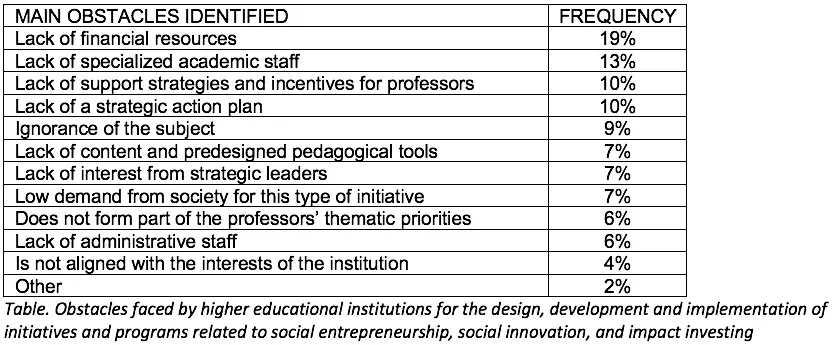In the field of higher education, and in business schools in particular, faculty recruitment requirements are constantly being analyzed. Both recruitment and retention strategies are especially important in the current context of a shortage of doctoral students, and hence of future business professors, as recognized by the Association to Advance Collegiate Schools of Business (AACSB ) in a recent paper. The long-term performance of business schools, which is closely linked to their reputational value, relies on faculty attraction and retention.
At present, hiring professors involves defining the characteristics of the ought to be in profiles, such as experience, academic training, and scientific publications, each delimited by validity and context references. Many of these parameters are recognized by educational organization, accrediting and ranking associations, which allows for competitive comparisons between institutions.
The faculty recruitment process in business schools is long and, in every case, candidates compete for acceptance. However, the complexity does not end there. On the contrary, this is the start of the race to maintain profile validity and, in addition, stand out in an aspect of faculty classification, such as research, consulting or specialized teaching, among others.
This is a challenge not only for professors, but also for institutions, which have the responsibility of providing the conditions for faculty development.
Laying the foundation of the new economy
Over the past decade, the higher education sector has played a major role in advancing entrepreneurship ecosystems in Latin America by promoting activities related to business and impact investing. However, there are still many opportunities to capitalize on the capacities of higher education to influence the development of research and curriculum design, and to generate a local infrastructure and develop key alliances to achieve the optimum level in their role as agents of strategic change in local ecosystems.
The fact of the matter is that the areas of knowledge in business schools are broad and diverse, each with their own specific faculty profiles and needs. But what do professors need to improve their performance regarding their foray into the areas of the new economy? To try to answer this question, I will focus on the ones that are in the process of assimilating and integrating the academic offering of higher education institutions in Latin America that form part of the topics that comprise the theory of the so-called New Economy, such as:
- Social entrepreneurship
- Social innovation
- Impact investing
The New Economy seeks to promote social change, from the design of business models and the behavior and intentionality in companies’ actions. However, this change has repercussions and requires the coordinated efforts of all the sectors of society.
Tec de Monterrey led the study “El rol de las instituciones de educación superior en América Latina para la formación y capacitación en negocios e inversión de impacto1” (The role of higher education institutions in Latin America for education and training in business and impact investing), seeking to analyze the role of higher education institutions in the design and implementation of initiatives and programs related to these issues. The study involved 122 surveys answered by directors, professors, and administrators from 100 higher education institutions in Mexico, Colombia, and Peru.
The results of this study identified the main obstacles to the implementation of initiatives and programs on the new economy: teacher training, lack of specialized academic staff, and lack of financial resources (see table).

Continuous teacher training and other findings
Although the entry profile for professors is defined by academic credentials, knowledge and specific experiences, continuous training, more than in any other industry, is indispensable and permanent.
As in all professions and specialties, collaborators must be given work tools. In this case, the findings of the study indicate that there is a lack of content, cases, tools, and methodologies that facilitate learning for educators and enhance learning experiences for students.
Other findings documented by the study point to remuneration systems for professors, which focus solely on payment for teaching classes, but, in most cases, fail to consider the design and preparation of materials, meaning that time and resources cannot be allocated to the design and improvement of tools or to the creation of state-of-the-art content.
Moreover, faculty participation in research activities is also hindered by the lack of financial resources. As a reference, the study found that 90% of the institutions surveyed do not have external financing funds and 70% do not have their own funds to conduct research.
All of this reveals the challenges prevailing in the context of institutions when broaching topics related to the so-called new economy and the reality that teachers face in the process, which, could be attributed to the lack of economic resources, but is also due to the lack of knowledge and interest of higher education institutions in Latin America.
Consult the study here:
- “El rol de las instituciones de educación superior en América Latina para la formación y capacitación en negocios e inversión de impacto.” Led by Tec de Monterey together with Sistema B and Academia B International, in collaboration with Universidad de los Andes de Colombia and Universidad Continental de Perú, sponsored by International Development Research Centre (IDRC). August 2021. This research undertaking was made possible thanks to a grant awarded by the International Development Research Centre, Ottawa, Canada. The opinions expressed herein do not necessarily reflect those of the IDRC or the Board of Governors.


